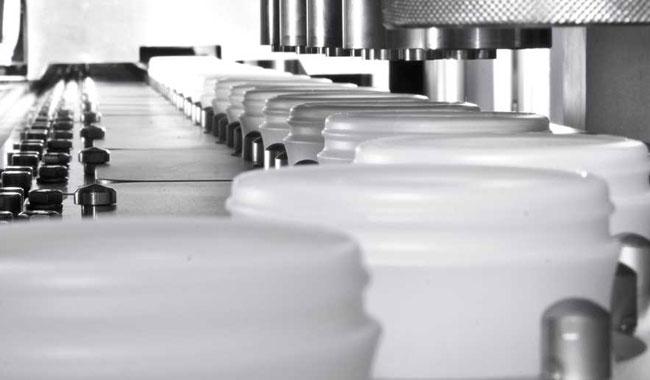KARACHI: Liquid food packaging could attract one billion euros in investment within the next two to five years if the government eliminates anomalies in the current tariff structure related to raw materials imported for use by the processing industry in the country, said an association on Saturday.
“This tariff is not only discriminatory but also goes against the government’s concessionary fiscal policy for the agriculture sector,” the Pakistan Dairy Association (PDA) said in its budget proposals for 2017/18.
The association said the packaged liquid milk and juices industry could grow ten times within five years if the government exempts polymers, coated paper/paper board and aluminum foil from customs duty or at least ensures the lowest possible duties.
Last year, a Netherlands-based dairy cooperative acquired majority stake in Engro Foods for around $450 million in the country’s single largest foreign direct investment over the past decade.
Pakistan country is the world’s third biggest milk producer. Dairy sector accounts for more than 11 percent of the country’s GDP.
Unfortunately, tons of raw milk goes down the drain because the processors couldn’t afford expensive packaging to improve lifespan of the perishable product.
“In case of reduction of duty or local taxes, cost of production of the food manufacturers will be reduced, which will not only result in safeguarding milk but will also help the government to increase tax revenues,” PDA added.
The dairy association further said withdrawal of zero rate sales tax for the dairy sector has ignited consumer prices of milk and milk-based products in the country, and is puffing up refund claims.
It said the government kept the milk and milk-based products, including raw milk produced in commercial farms under the zero rate sales tax to contain rise in prices at the consumers end for the past one decade.
But, this zero-rating status was removed, while the government slapped 10 percent sales tax on powder milk, cream, yogurt, cheese, butter and whey. The only exceptions are ultra high temperature-treated and fat filled milk, which were exempted from tax under the Sales Tax Act 1990.
“Removing of zero rate tax policy had drastically increased the cost of the milk processing industry, which eventually is resulting into the increasing trend of prices of packaged/hygienic milk and milk based products,” the association said. “Removing of zero rating policy is also hampering the growth and development of documented industry.
Resultantly, the undocumented segment (fresh milk market) of the economy is flourishing.”
Particularly, milk powder and skimmed milk powder carry hefty 25 percent regulatory duty on its import – a measure introduced through Finance Act 2016/17.
Imported milk powder is imperative to cater to the demand of manufacturing infant formulae as well as for production of various other dairy products especially in summers, known as lean period. Again, high sensitivity of locally-produced fresh milk makes the input inadequate to turn out the required output of infant formulae.
“It is recommended to abolish regulatory duty on import of whey and milk powders and also to reduce the customs duty from 20 to 10 percent,” the PDA said. Regulatory duty on skimmed milk powder should be brought down to five percent, which was maintained for several years, to ease prices of various confectionary items and sweets.
It further said zero rating will stop the accumulation of refunds at source, improve the cash flow position of dairy companies and avoid the cumbersome procedure for obtaining zero rating certificates from the tax authorities.
Dairy inputs required for the manufacturing of some goods are enjoying zero tax rating. Capital goods, like farm machinery, are, however, subject to input tax.
Currently, import of agriculture machinery bears non-adjustable sales tax of seven percent. Interestingly, import of mower, cutter and milking equipment are still charged 17 percent of sales tax – the rate which existed before Finance Act 2015.
The dairy association demanded of the government to make seven percent adjustable and the proposed rate should cover all imported agriculture machinery.
The association sought reprieve for middlemen involved in milk collection and distribution chain from income tax withholding. Presently, when a processor procures milk from commission agent, the commission is taxed at the rate of 15 percent. This is not the case when milk is directly purchased from growers.
“This is clearly a case of hardship as milk commission agents are small entrepreneurs and tax rate is far higher than the income they earn through the means of collection and selling of milk,” it said. The government should exempt the companies registered with large taxpayers units or listed on the Pakistan Stock Exchange from collection of income tax.
PDA further asked the government to provide electricity to dairy farms and milk chillers at subsidised tariffs much like other agriculture sub sectors.
Source: www.thenews.com.pk


Comments are closed.